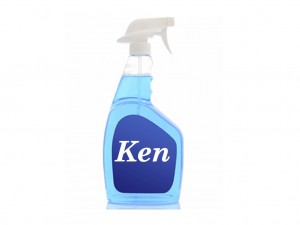 A lot of employers treat their staff like a bottle of Windex. Let’s Clear the Path of this problem before it starts to burn people out and take you further away from your big picture goals.
A lot of employers treat their staff like a bottle of Windex. Let’s Clear the Path of this problem before it starts to burn people out and take you further away from your big picture goals.
Have you ever found yourself doing some holiday cleaning and your realize that you’re running low on glass cleaner? The only way you can get the job done is to add water to mixture.
Before long you realize that by diluting the cleaner, it doesn’t work as well. Things are clean but maybe only 60% of what they should be. You just don’t have the same sparkle as usual. But in your mind, it’s a worthwhile trade as you didn’t want to make a trip to the store.
Let’s move forward a few weeks and you need to break out the Windex again. You still haven’t bought a new bottle. As was the case before, to avoid making a trip to the store, you add a little more water to the mixture. Now, in order to get things clean you have to make multiple applications and use a lot of elbow grease.
For some, this ritual will continue until their Windex is clear. They mean to get a new bottle but just don’t get around to it. Meanwhile the cleaning power keeps going down and down. They spend more time trying to clean with pure water, rather than get a new bottle.
It’s become very popular to add duties to employees. For some, it’s a product of the recession. Fewer people means those who are still around have to do more work.
But by giving them more to do, are you diluting their productivity? Has their time been filled with so many things that they are barely doing the job they do best?’
In the case of a dirty window, a new bottle of glass cleaner represents the simple solution. Yes, it take time to get a new bottle but by having the correct formula, you can clean stuff a lot faster and better.
With that in mind, are you supporting your team members when you ask/tell them to do more? While you can’t shrink their responsibilities, are you giving them the tools and training they need to be productive?
Don’t forget to prioritize employee workloads. It’s possible to be busy all day but not get any work done on your big goals. Make sure your team knows what they need to do and be there to offer guidance if they’re having trouble succeeding with a longer to do list.
Just because your employees are governed by the the phrase, “other duties as necessary,” doesn’t mean your responsibility to them ends when you give them a new task.





